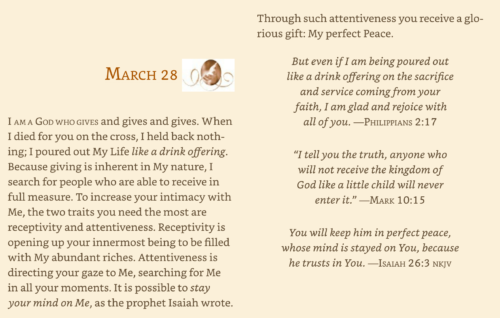Fear Is Contraction
Father Richard Rohr locates the primary source of our fears in our small or false selves, which are unable to trust the love of God that infuses all of reality.
Fear unites the disparate parts of our false selves very quickly. The ego moves forward by contraction, self-protection, and refusal, by saying no. Contraction gives us focus, purpose, direction, superiority, and a strange kind of security. It takes our aimless anxiety, covers it up, and tries to turn it into purposefulness and urgency, which results in a kind of drivenness. But this drive is not peaceful or happy. It is filled with fear and locates all its problems as “out there,” never “in here.”
The soul or the True Self does not proceed by contraction but by expansion. It moves forward, not by exclusion, but by inclusion. It sees things deeply and broadly not by saying no but by saying yes, at least on some level, to whatever comes its way. Can you distinguish between those two very different movements within yourself?
Fear and contraction allow us to eliminate other people, write them off, exclude them, and somehow expel them, at least in our minds. This immediately gives us a sense of being in control and having a secure set of boundaries—even holy boundaries. But people who are controlling are usually afraid of losing something. If we go deeper into ourselves, we will see that there is both a rebel and a dictator in all of us, two different ends of the same spectrum. It is almost always fear that justifies our knee-jerk rebellion or our need to dominate—a fear that is hardly ever recognized as such because we are acting out and trying to control the situation.
Author Gareth Higgins describes moving through the “no” of fear to the “yes” of love:
Look beneath your fear and you will discover what it is you really care about. What you wish to protect: people, places, things, hopes, dreams. Aggression, shame, and disconnection—even as attempts at making a better life for me or a better world for all of us—don’t work. But as we expand our circle of caring to include all people, all places, all of creation, we discover that our fears are shared and that all our cares come from the same place. Come to understand your fear, and you may find that we’re all just trying to figure out how to love. [1]
Father Richard continues:
Unless there is someone to hold and accompany us on these inner journeys, much of humanity cannot go very deep inside. If only we knew Who we would meet there, and could say, with St. Catherine of Genoa (1447–1510), “My deepest me is God!” [2] Without such accompaniment, most of us will stay on the surface of our own lives, where small-spiritedness keeps us from being bothered by others. Yet with divine accompaniment, we will literally “find our souls” and the One who lovingly dwells there.
A Mother Hen God
At that very hour some Pharisees came and said to [Jesus], “Get away from here, for Herod wants to kill you.”He said to them, “Go and tell that fox for me, ‘Listen, I am casting out demons and performing cures today and tomorrow, and on the third day I finish my work.’ . . . Jerusalem, Jerusalem, the city that kills the prophets and stones those who are sent to it! How often have I desired to gather your children together as a hen gathers her brood under her wings, and you were not willing!” —Luke 13:31–32, 34
Nadia Bolz-Weber is a Lutheran pastor, author, and dear friend of Father Richard’s. She published this sermon during the first COVID shutdown in the United States. She describes how Christians might interpret the oft-given scriptural command to “Be not afraid.”
Never once have I stopped being afraid just because someone said that.
I AM afraid. . . .
So maybe our hope for becoming unafraid is found in . . . the part where Jesus calls Herod a fox and then refers to himself as a mother hen.
A mother hen.
Maybe that beautiful image of God could mean something important for us: and by us I mean we fragile, vulnerable human beings who face very real danger. I can’t bear to say that this scripture is a description of what behaviors and attitudes you could imitate if you want to be a good, not-afraid person. But neither can I tell you that the Mother Hen thing means that God will protect you from Herod or that God is going to keep bad things from happening to you.
Because honestly, nothing actually keeps danger from being dangerous.
A mother hen cannot actually keep a determined fox from killing her chicks. So where does that leave us? I mean, if danger is real, and a hen can’t actually keep their chicks out of danger, then what good is this image of God as Mother Hen if faith in her can’t make us safe?
Well, today I started to think that maybe it’s not safety that keeps us from being afraid.
Maybe it’s love.
Which means that a Mother Hen of a God doesn’t keep foxes from being dangerous . . . a Mother Hen of a God keeps foxes from being what determines how we experience the unbelievably beautiful gift of being alive.
God the Mother Hen gathers all of her downy feathered, vulnerable little ones under God’s protective wings so that we know where we belong, because it is there that we find warmth and shelter.
But Faith in God does not bring you safety.
The fox still exists.
Danger still exists.
And by that I mean, danger is not optional, but fear is.
Because maybe the opposite of fear isn’t bravery. Maybe the opposite of fear is love. So in the response to our own Herods,
